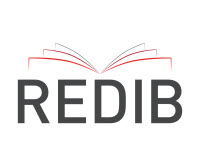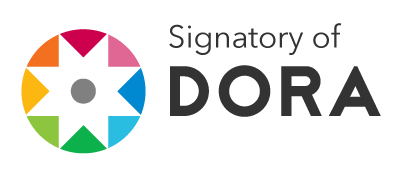Investigación europea sobre el comportamiento de la información en el siglo XXI
Resumen
Este trabajo contribuye al conocimiento global del estudio del comportamiento informacional ofreciendo un mapa de la investigación europea durante el siglo XXI desde los puntos de vista cuantitativo y cualitativo. Desde un punto de vista cuantitativo, se describen los países e instituciones cuyos investigadores han publicado resultados. Desde un punto de vista cualitativo, se describen los investigadores y las áreas de estudio de los principales centros de investigación europeos. Los resultados muestran que no existe un área de investigación común, sino investigadores aislados o pequeños grupos de investigación punteros, generalmente del norte de Europa, que han trabajado en esta área durante los primeros años del siglo XXI.
Descargas
Citas
Ardanuy, J., & Urbano, C. (2015). Una mirada italiana a la colaboración científica europea en Biblioteconomía, Información y Documentación (2010-2014). Biblioteca Oggi. Trends, 2(2), 71-82. https://doi.org/10.3302/2421-3810-201502-071-1
ASIS&T (2020). Vakkari to Receive ASIS&T Research in Information Science Award. Retrieved from https://www.asist.org/2020/06/26/vakkari-to-receive-asist-research-in-information-science-award/
CIBER Research Ltd (2022). CIBER Research Projects. Retrieved from https://ciber-research.com/CIBER_projects.html
City, University of London (2022). Dr Stephann Makri. Senior Lecturer. Retrieved from https://www.city.ac.uk/about/people/academics/stephann-makri
Deng, S. y Xia, S. (2020). Mapping the interdisciplinarity in information behavior research: a quantitative study using diversity measure and co-occurrence analysis. Scientometrics, 124(1), 489-513. https://doi.org/10.1007/s11192-020-03465-x
Deng, S., Xia, S., Hu, J., Li, H. y Liu, Y. (2021). Exploring the topic structure and evolution of associations in information behavior research through co-word analysis. Journal of Librarianship and Information Science, 53(2), 280-297. https://doi.org/10.1177/0961000620938120
González‐Teruel, A., Araújo, C.-A.-Á. y Sabelli, M. (2022). Diffusion of theories and theoretical models in the Ibero‐American research on information behavior. Journal of the Association for Information Science and Technology, 73(4), 561-578. https://doi.org/10.1002/asi.24598
González-Teruel, A., González-Alcaide, G., Barrios, M. y Abad-García, M.-F. (2015). Mapping recent information behavior research: an analysis of co-authorship and co-citation networks. Scientometrics, 103(2), 687-705. https://doi.org/10.1007/s11192-015-1548-z
González-Teruel, A. y Abad-García, F. (2018). The influence of Elfreda Chatman’s theories: A citation context analysis. Scientometrics, 117(3), 1793-1819. https://doi.org/10.1007/s11192-018-2915-3
González-Teruel, A. y Andreu-Ramos, C. (2013). Investigación del comportamiento informacional a través del análisis de redes sociales. Profesional de la Informacion, 22(6), 522-528. https://doi.org/10.3145/epi.2013.nov.04
González-Teruel, A. y Pérez-Pulido, M. (2020). The diffusion and influence of theoretical models of information behaviour. The case of Savolainen's ELIS model. Journal of Documentation, 76(5), 1069-1089. https://doi.org/10.1108/JD-10-2019-0197
González-Teruel, A., Araújo, C.-A.-Á. y Sabelli, M. (2022). Diffusion of theories and theoretical models in the Ibero-American research on information behavior. Journal of the Association for Information Science and Technology, 73(4), 561-578. https://doi.org/10.1002/asi.24598
Hall, H. (2022). Hazel Hall Hazel Hall. Professor of Social Informatics, Edinburgh Napier University. Retrieved from https://hazelhall.org/
Han, P., Shi, J., Li, X., Wang, D., Shen, S., & Su, X. (2014). International collaboration in LIS: global trends and networks at the country and institution level. Scientometrics, 98(1), 53-72. https://doi.org/10.1007/s11192-013-1146-x
Han, X. (2020). Evolution of research topics in LIS between 1996 and 2019: An analysis based on latent Dirichlet allocation topic model. Scientometrics, 125(3), 2561-2595. https://doi.org/10.1007/s11192-020-03721-0
Hansen, P. (2022). Research focus. Retrieved from https://hansen.blogs.dsv.su.se/research-focus-and-focus/
Hertzum, M. (2022). Research. Retrieved from https://mortenhertzum.dk/research.html
Hicks, A. (2022). Research interests. Retrieved from https://alisonhicks.weebly.com/research.html
Huotari, M.-L. y Chatman, E. (2001). Using everyday life information seeking to explain organizational behavior. Library and Information Science Research, 23(4), 351-366. https://doi.org/10.1016/S0740-8188(01)00093-7
Huotari, M.-L. y Wilson, T. D. (2001). Determining organizational information needs: The critical success factors approach. Information Research, 6(3). https://www.scopus.com/inward/record.uri?eid=2-s2.0-3042617304&partnerID=40&md5=50e418eddb3a51974e356c03454e1ddf
Huvila, I. (2008). Participatory archive: Towards decentralised curation, radical user orientation, and broader contextualisation of records management. Archival Science, 8(1), 15-36. https://doi.org/10.1007/s10502-008-9071-0
Huvila, I. (2022). About me. Retrieved from https://www.istohuvila.se/index.php/about-me
Huvila, I., Anderson, T. D., Jansen, E. H., McKenzie, P. y Worrall, A. (2017). Boundary objects in information science. Journal of the Association for Information Science and Technology, 68(8), 1807-1822. https://doi.org/10.1002/asi.23817
Huvila, I., Enwald, H., Eriksson-Backa, K., Hirvonen, N., Nguyen, H. y Scandurra, I. (2018). Anticipating ageing: Older adults reading their medical records. Information Processing and Management, 54(3), 394-407. https://doi.org/10.1016/j.ipm.2018.01.007
Ioannidis, J. P. A., Boyack, K. W. y Klavans, R. (2014). Estimates of the continuously publishing core in the scientific workforce. PloS one, 9(7), e101698. https://doi.org/10.1371/journal.pone.0101698
Julien, H. y O’Brien, M. (2014). Information behaviour research: where have we been, where are we going? Canadian Journal of Information and Library Science, 38(4), 239-250. https://doi.org/10.1353/ils.2014.0016
Känsäkoski, H., Hirvonenis, N., Palmgren-Neuvonen, L., Nygård, T. y Huotari, M.-L. (2021). Finnish adolescents’ selection and assessment of health information sources. Information Research: an international electronic journal, 26(1). https://doi.org/10.47989/IRPAPER893
Kostagiolas, P. A., Aggelopoulou, V. A. y Niakas, D. (2011). A study of the information seeking behaviour of hospital pharmacists: Empirical evidence from Greece. Health Information and Libraries Journal, 28(4), 302-312. https://doi.org/10.1111/j.1471-1842.2011.00963.x
Kostagiolas, P. A., Lavranos, C., Martzoukou, K. y Papadato, J. (2017). The role of personality in musicians' information seeking for creativity. Information Research, 22(2). https://www.scopus.com/inward/record.uri?eid=2-s2.0-85023749906&partnerID=40&md5=69267c8516aa167d18e326c14c8babfa
Lloyd, A. (2022). Dr Annemaree Lloyd. Retrieved from https://anniemlloyd.com/
Madden, A. D., Webber, S., Ford, N. J. y Crowder, M. (2018). The relationship between students’ subject preferences and their information behaviour. Journal of Documentation, 74(4), 692-721. https://doi.org/10.1108/JD-07-2017-0097
Madden, A., Ruthven, I. y McMenemy, D. (2013). A classification scheme for content analyses of YouTube video comments. Journal of Documentation, 69(5), 693-714. https://doi.org/10.1108/JD-06-2012-0078
Marcella, R. y Baxter, G. (2000). Information need, information seeking behaviour and participation, with special reference to needs related to citizenship: results of a national survey. Journal of Documentation, 56(2), 136-160. https://doi.org/10.1108/EUM0000000007112
Marcella, R., Baxter, G. y Walicka, A. (2019). User engagement with political “facts” in the context of the fake news phenomenon: An exploration of information behaviour. Journal of Documentation, 75(5), 1082-1099. https://doi.org/10.1108/JD-11-2018-0180
Marcella, R., Baxter, G., Davies, S. y Toornstra, D. (2007). The information needs and information-seeking behaviour of the users of the European Parliamentary Documentation Centre: A customer knowledge study. Journal of Documentation, 63(6), 920-934. https://doi.org/10.1108/00220410710836420
Milojević, S., Sugimoto, C. R., Yan, E. y Ding, Y. (2011). The cognitive structure of Library and Information Science: Analysis of article title words. Journal of the American Society for Information Science and Technology, 62(10), 1933-1953. https://doi.org/10.1002/asi.21602
Nicholas, D.; Rowlands, I.; Clark, D.; Huntington, P.; Jamali, H. R.; Ollé, C. (2008): UK scholarly e-book usage: A landmark survey. En: Aslib Proceedings: New Information Perspectives 60 (4), pág. 311-334. DOI: https://doi.org/10.1108/00012530810887962
Nicholas, D.; Rowlands, I.; Clark, D.; Williams, P. (2011): Google Generation II: Web behaviour experiments with the BBC. En: Aslib Proceedings: New Information Perspectives 63 (1), pág. 28-45. DOI: https://doi.org/10.1108/00012531111103768
Nicholas, D.; Williams, P.; Rowlands, I.; Jamali, H. R. (2010): Researchers' E-journal use and information seeking behaviour. En: Journal of Information Science 36 (4), pág. 494-516. DOI: https://doi.org/10.1177/0165551510371883
Olmeda-Gómez, C. y Moya-Anegón, F. de. (2016). Publishing Trends in Library and Information Sciences Across European Countries and Institutions. The Journal of Academic Librarianship, 42(1), 27-37. https://doi.org/10.1016/j.acalib.2015.10.005
Robinson, L. (2022). Dr Lyn Robinson. Retrieved from https://lynrobinson.com/
Schubert, A. y Glänzel, W. (1991). Publication dynamics: Models and indicators. Scientometrics, 20(1), 317-331. https://doi.org/10.1007/bf02018161
Shenton, A. K. y Dixon, P. (2004). Issues arising from youngsters' information-seeking behavior. Library and Information Science Research, 26(2), 177-200. https://doi.org/10.1016/j.lisr.2003.12.003
Shenton, A. K. y Hay-Gibson, N. V. (2012). Information behaviour meta-models. Library Review, 61(2), 92-109. https://doi.org/10.1108/00242531211220735
Shenton, A. K. y Hayter, S. (2006). Terminology deconstructed: Phenomenographic approaches to investigating the term "information". Library and Information Science Research, 28(4), 563-578. https://doi.org/10.1016/j.lisr.2006.10.003
Sugimoto, C. R., Li, D., Russell, T. G., Finlay, S. C., & Ding, Y. (2011). The shifting sands of disciplinary development: Analyzing North American Library and Information Science dissertations using latent Dirichlet allocation. Journal of the American Society for Information Science and Technology, 62(1), 185-204. https://doi.org/10.1002/asi.21435
University of Oulu. (2022). Noora Hirvonen. Retrieved from https://www.oulu.fi/en/researchers/noora-hirvonen
University of Sheffield (2020b). Professor Peter Bath. Retrieved from https://www.sheffield.ac.uk/is/people/academic/peter-bath
University of Sheffield (2020c). Professor Nigel Ford. Retrieved from https://www.sheffield.ac.uk/is/people/emeritus-honorary-visiting/nigel-ford
University of Sheffield (2021). Dr Andrew Madden. Retrieved from https://www.sheffield.ac.uk/is/people/research/andrew-madden
University of Sheffield (2022a). Cox, Andrew, Dr. Retrieved from https://www.sheffield.ac.uk/is/people/academic/andrew-cox
University of Strathclyde (2022). Professor Ian Ruthven. Computer and Information Sciences. Retrieved from https://www.strath.ac.uk/staff/ruthvenianprof/
Wilson, T. D. (1999). Models in information behaviour research. Journal of Documentation, 55(3), 249-270. https://doi.org/10.1108/EUM0000000007145
Wilson, T. (2008). The information user: Past, present and future. Journal of Information Science, 34(4), 457-464. https://doi.org/10.1177/0165551508091309
Derechos de autor 2023 Aurora González-Teruel

Esta obra está bajo licencia internacional Creative Commons Reconocimiento 4.0.







.jpg)




















